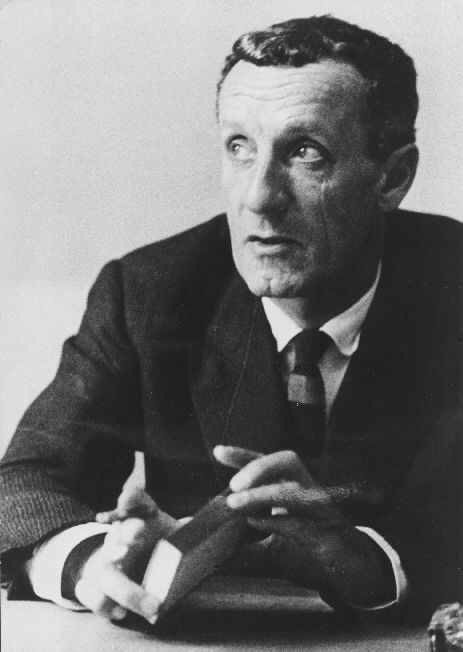Proza świata. Eseje o mowie
Źródło: Postrzeganie, ekspresja, sztuka, s. 212
Maurice Merleau-Ponty słynne cytaty
Humanizm i terror (1947)
„(…) prawda wydaje się niemożliwa bez absolutnej autoidentyfikacji w aktywnej myśli.”
Źródło: Fenomenologia percepcji (1976), Warszawa 1993, s. 81.
Maurice Merleau-Ponty: Cytaty po angielsku
“The world is nothing but 'world-as-meaning.”
Źródło: Phenomenology of Perception (1945), p. xi
“The body is our general medium for having a world.”
Źródło: Phenomenology of Perception
“It is a great good fortune, as Stendhal said, for one “to have his passion as a profession.””
Źródło: In Praise of Philosophy (1963), p. 4
Źródło: In Praise of Philosophy (1963), p. 5
Kontekst: Even those who have desired to work out a completely positive philosophy have been philosophers only to the extent that, at the same time, they have refused the right to install themselves in absolute knowledge. They taught not this knowledge, but its becoming in us, not the absolute but, at most, our absolute relation to it, as Kierkegaard said. What makes a philosopher is the movement which leads back without ceasing from knowledge to ignorance, from ignorance to knowledge, and a kind of rest in this movement.
Źródło: In Praise of Philosophy (1963), p. 59
Kontekst: Machiavelli is the complete contrary of a machiavellian, since he describes the tricks of power and “gives the whole show away.” The seducer and the politician, who live in the dialectic and have a feeling and instinct for it, try their best to keep it hidden.
“Language transcends us and yet, we speak.”
Źródło: Phenomenology of Perception (1945), p. 349
Źródło: In Praise of Philosophy (1963), p. 57
Źródło: In Praise of Philosophy (1963), p. 45
Źródło: In Praise of Philosophy (1963), pp. 45-46
Źródło: Phenomenology of Perception (1945), p. 374
Źródło: In Praise of Philosophy (1963), p. 44
Źródło: In Praise of Philosophy (1963), p. 8
Źródło: In Praise of Philosophy (1963), p. 47
Źródło: In Praise of Philosophy (1963), p. 46
The Visible and the Invisible, trans. A. Lingis (Evanston: 1968), p. 135
Signs, trans. R. McCleary (Evanston: 1964), p. 203
